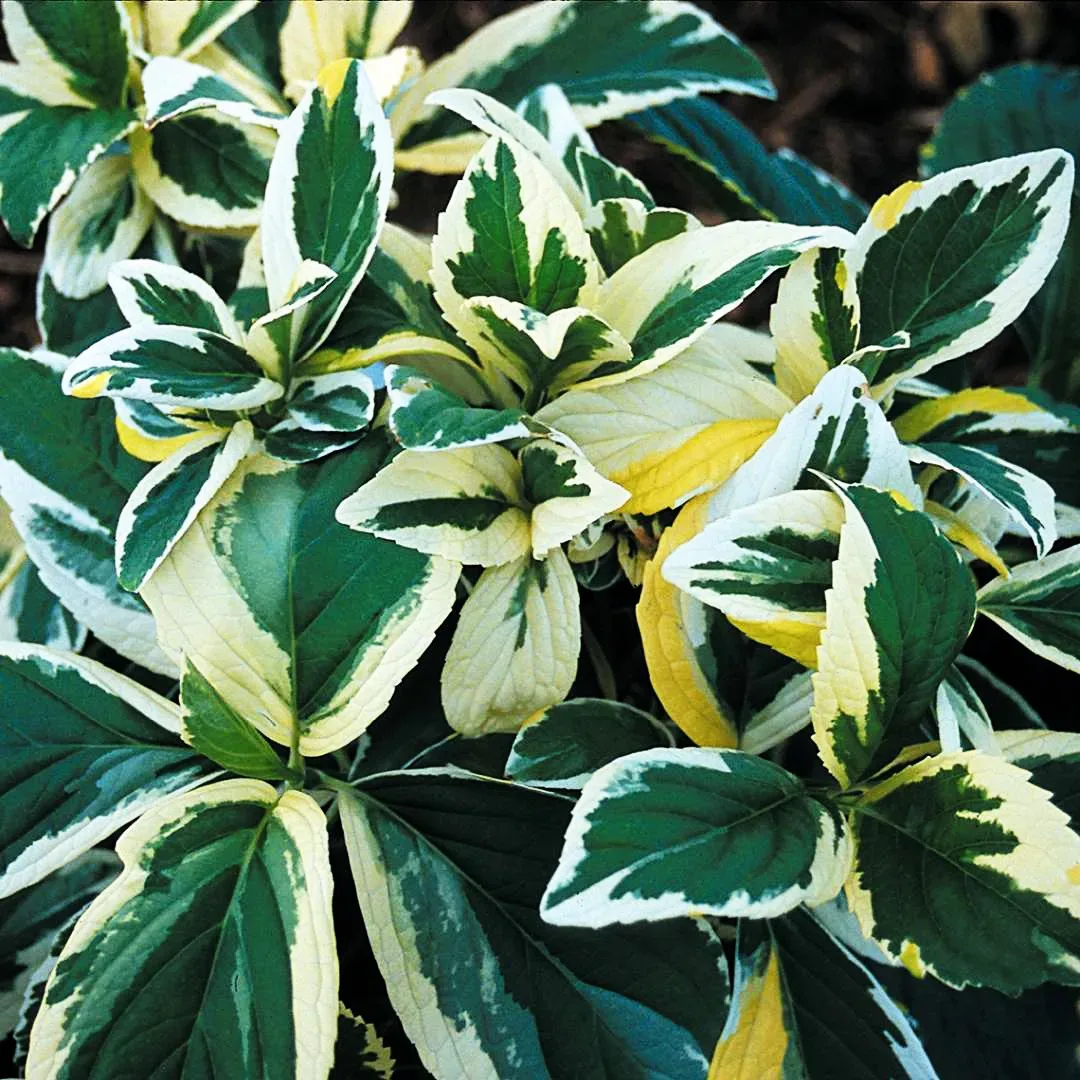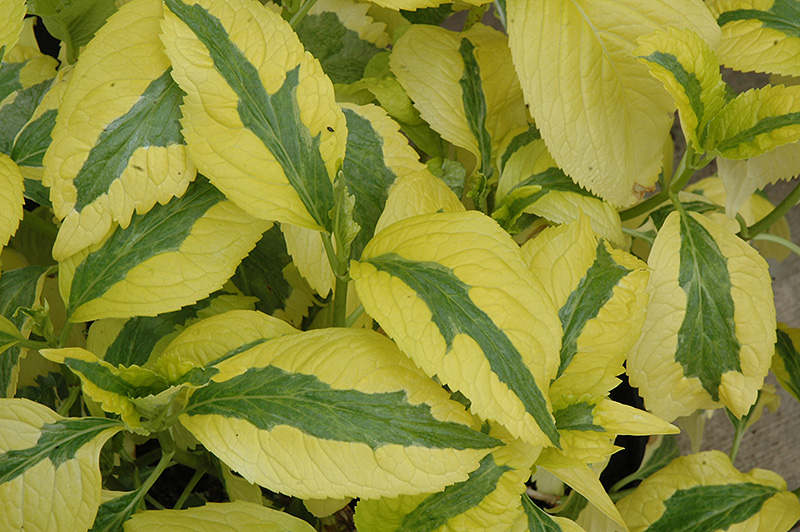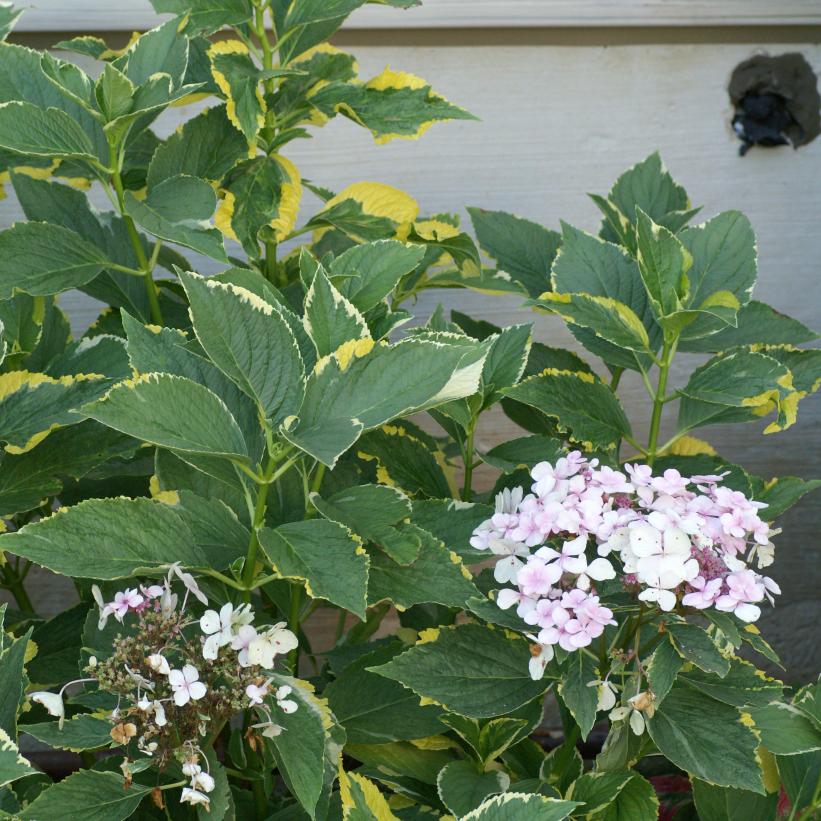Lemon Wave Hydrangea: The Showstopper Shrub That Will Brighten Your Summer
Lemon Wave Hydrangea: The Showstopper Shrub That Will Brighten Your Summer
If you're looking for a showstopping shrub that will brighten up your summer garden, look no further than the lemon wave hydrangea. This stunning plant is known for its unique variegated foliage and large, lacecap blooms.
Introduction
Lemon wave hydrangea (Hydrangea macrophylla 'Lemon Wave') is a deciduous shrub that grows 3-6 feet tall and wide. It has dark green leaves with irregular margins that are splashed with white, cream, and yellow. In the summer, it produces large, flat-topped clusters of white flowers that can be pink or blue depending on the acidity of the soil.
Lemon wave hydrangea is a relatively easy plant to care for. It prefers full to partial shade and moist, well-drained soil. It is hardy in USDA zones 6-9.
Main Content
Here are some of the reasons why lemon wave hydrangea is a great choice for your garden:
- Unique foliage: The variegated foliage of lemon wave hydrangea is truly eye-catching. The combination of dark green, white, cream, and yellow leaves creates a stunning display that will brighten up any garden.
- Large, lacecap blooms: The large, lacecap blooms of lemon wave hydrangea are another reason why this plant is so popular. The blooms are white with a pink or blue cast, and they can measure up to 10 inches in diameter.
- Easy to care for: Lemon wave hydrangea is a relatively easy plant to care for. It prefers full to partial shade and moist, well-drained soil. It is hardy in USDA zones 6-9.
- Long blooming period: Lemon wave hydrangea blooms from late spring to early fall. This means that you can enjoy its beautiful flowers for a long period of time.
How to Plant Lemon Wave Hydrangea
To plant lemon wave hydrangea, choose a spot in your garden that receives full to partial shade. The soil should be moist but well-drained. Amend the soil with compost or other organic matter before planting.
Dig a hole that is twice the width and depth of the root ball of the lemon wave hydrangea. Place the plant in the hole and backfill with soil. Water the plant well and mulch around the base to help retain moisture.
How to Care for Lemon Wave Hydrangea
Lemon wave hydrangea is a relatively low-maintenance plant. Water it regularly, especially during hot, dry weather. Fertilize it once a year in the spring with a balanced fertilizer.
Prune lemon wave hydrangea in the spring, after the blooms have faded. Remove any dead, damaged, or diseased branches. You can also lightly prune the plant to shape it.
Where to Buy Lemon Wave Hydrangea
Lemon wave hydrangea is available at most garden centers and online retailers. When purchasing a lemon wave hydrangea, look for a plant that is healthy and has no signs of pests or diseases.
Conclusion
If you're looking for a beautiful and easy-care shrub to add to your garden, lemon wave hydrangea is a great choice. This stunning plant is sure to brighten up your summer with its unique foliage and large, lacecap blooms.
If you're looking for a hydrangea with unique and eye-catching foliage, the lemon wave hydrangea is a great option. This deciduous shrub features large, variegated leaves that are green with yellow or cream margins. The flowers are also a beautiful shade of pink or blue, depending on the pH of the soil.
Lemon wave hydrangeas are relatively easy to care for and can be grown in a variety of conditions. They prefer moist, well-drained soil and dappled shade. However, they can also tolerate full sun in cooler climates.
If you're interested in learning more about lemon wave hydrangeas, I recommend visiting . This website has a wealth of information about this plant, including detailed plant descriptions, photos, and growing tips.
FAQ of lemon wave hydrangea
1. What is a Lemon Wave Hydrangea?
A Lemon Wave Hydrangea is a deciduous shrub that grows up to 6 feet tall and wide. It has large, wavy-edged leaves and produces large, panicle-shaped blooms that are lemon yellow in color. The blooms typically appear in late spring or early summer and last for several weeks.
2. Where does a Lemon Wave Hydrangea grow best?
Lemon Wave Hydrangeas prefer full sun to partial shade and well-drained soil. They are hardy in USDA zones 5-9.
3. How do I care for a Lemon Wave Hydrangea?
Lemon Wave Hydrangeas are relatively easy to care for. Water them regularly, especially during hot, dry weather. Fertilize them in the spring with a balanced fertilizer. Deadhead spent blooms to encourage new growth.
4. How do I get my Lemon Wave Hydrangea to bloom?
Lemon Wave Hydrangeas need a period of cold weather in order to bloom. If you live in a warm climate, you may need to provide your plant with some winter protection. You can do this by covering it with a burlap sack or placing it in a cold frame.
5. What are some common pests and diseases that can affect Lemon Wave Hydrangeas?
The most common pests that can affect Lemon Wave Hydrangeas are aphids, spider mites, and scale insects. These pests can be controlled with insecticidal soap or neem oil. The most common diseases that can affect Lemon Wave Hydrangeas are leaf spot, powdery mildew, and verticillium wilt. These diseases can be prevented by watering your plant properly and providing it with good air circulation.
Image of lemon wave hydrangea
5 different images of "lemon wave hydrangea" from Pinterest:
- A large, lush shrub covered in delicate white flowers with a lemon-yellow edge.

- A close-up of a single flower, showing the delicate petals and the yellow edging.

- A row of lemon wave hydrangeas in bloom, against a backdrop of green foliage.
- A lemon wave hydrangea in a pot, on a patio.

- A lemon wave hydrangea in full bloom, against a blue sky.

Post a Comment for "Lemon Wave Hydrangea: The Showstopper Shrub That Will Brighten Your Summer"